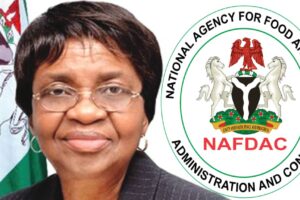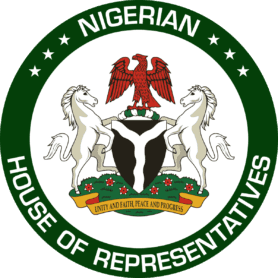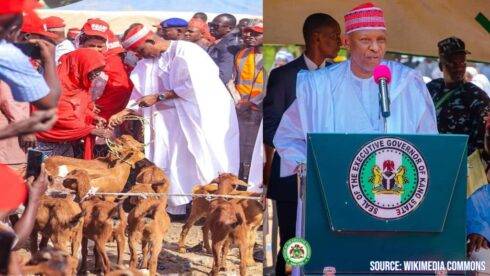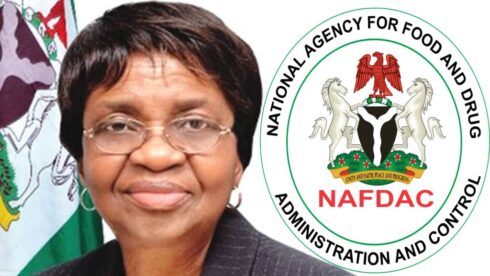Kano State Governor, Abba Yusuf, has officially launched the second phase of the Livestock Fattening Programme, a flagship project under the Kano Agro-Pastoral Development Project. This initiative is a bold step aimed at reducing poverty, fostering economic independence, and empowering vulnerable groups across the state. According to Sanusi Dawakin-Tofa, the governor’s spokesperson, this phase targets women from all 44 local government areas, enabling them to establish sustainable livelihoods through livestock farming.
The project represents a strategic approach to addressing the socioeconomic challenges facing Kano State. By focusing on livestock as a source of income generation, the programme seeks to transform the lives of underprivileged groups. It also aligns with broader efforts to diversify the state’s economy and build resilience in rural communities.
Empowering Women Through Livestock Distribution
A significant feature of this phase is its focus on women’s economic empowerment. Governor Abba Yusuf revealed during the launch that 7,158 goats would be distributed to 2,386 women, with each beneficiary receiving three goats. This targeted intervention not only equips women with resources to start livestock businesses but also aims to bridge the gender gap in economic opportunities.
In addition to immediate economic benefits, the initiative encourages long-term sustainability by fostering entrepreneurship among women. By engaging women in livestock farming, the programme hopes to create ripple effects in local economies, enhancing household incomes and reducing financial dependence on government assistance.
Future Phases to Expand Economic Reach
The second phase of the Livestock Fattening Programme is only the beginning of a broader initiative. Governor Abba Yusuf announced plans to distribute 1,342 cows and 1,822 rams to women and youths in subsequent phases. These efforts aim to diversify the agricultural sector while ensuring inclusivity in economic development.
This phased approach underscores the government’s commitment to creating a comprehensive framework for poverty alleviation. By extending opportunities to both women and youths, the programme builds a foundation for intergenerational economic empowerment and community resilience.
A Sustainable Pathway to Economic Independence
Governor Abba Yusuf emphasized that the initiative goes beyond mere livestock distribution. “This initiative is not just about distributing livestock but about fostering a sustainable economic model that uplifts communities and reduces dependency on government aid,” he stated. The programme encourages recipients to responsibly utilize the livestock as assets for continuous income generation.
This approach aligns with global best practices in poverty reduction, focusing on empowerment rather than dependency. By providing tools and resources for self-reliance, the initiative creates a sustainable economic framework that benefits individuals and communities alike.
Boosting Local Agriculture and Livestock Production
The Livestock Fattening Programme also contributes to the broader agricultural development agenda in Kano State. By increasing livestock production, the initiative supports the state’s goal of enhancing food security and promoting local economic growth. It further strengthens Kano’s position as a key player in Nigeria’s agricultural sector.
Moreover, the programme has the potential to drive ancillary industries such as feed production, veterinary services, and market infrastructure. These developments are expected to create additional job opportunities and stimulate economic activities across the state.
Call to Action: Collaboration for Long-Term Impact
Governor Abba Yusuf urged beneficiaries to make the most of the opportunities provided by the programme. He also called on stakeholders, including local governments, private sector partners, and development agencies, to support the initiative for maximum impact. Collaboration is seen as vital to ensuring the programme’s sustainability and scalability.
By investing in people and fostering partnerships, the Kano State government demonstrates its commitment to building a prosperous and self-reliant society. The Livestock Fattening Programme serves as a model for other states seeking innovative solutions to poverty and economic inequality.
Table of Contents
Discover more from OGM News NG
Subscribe to get the latest posts sent to your email.













